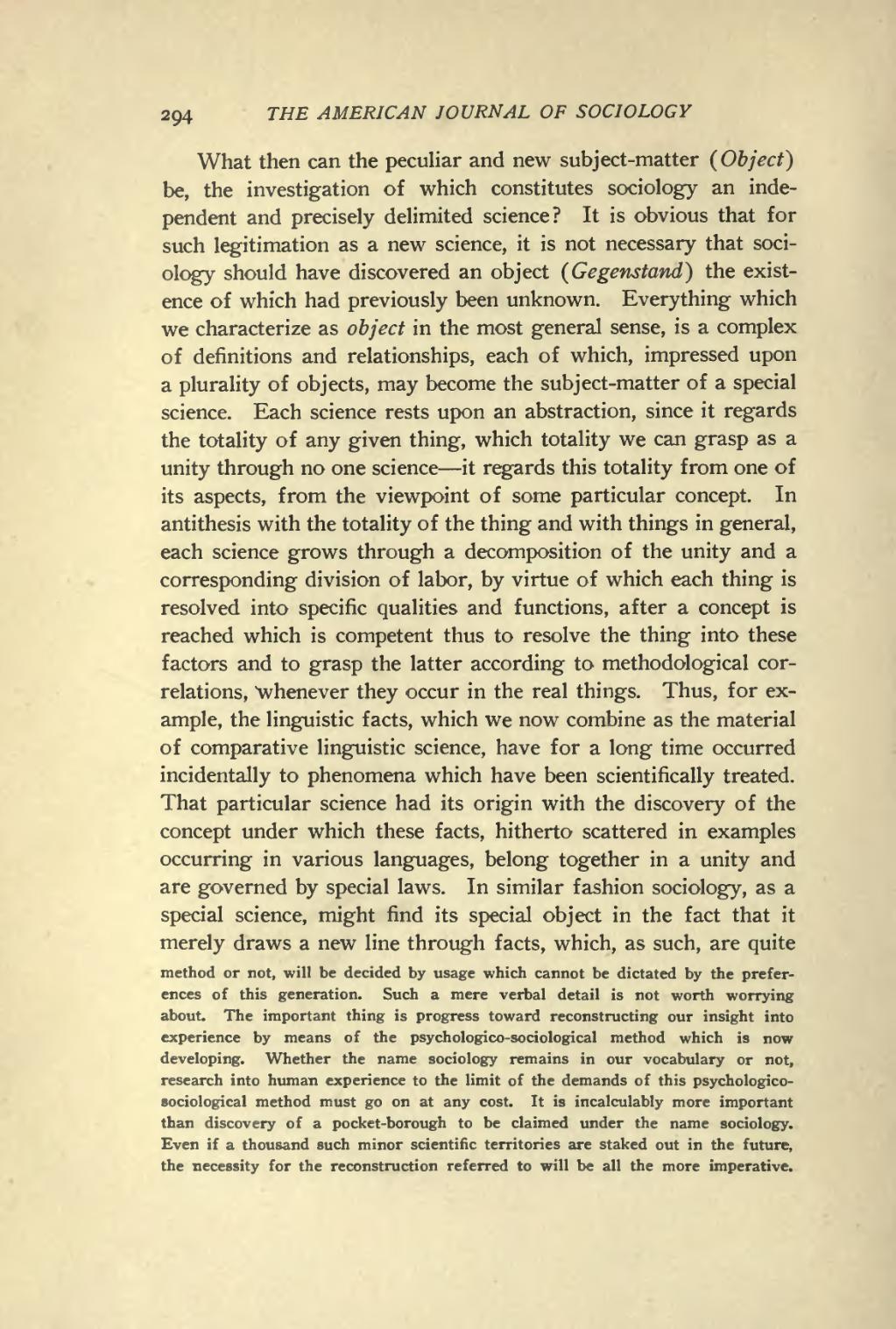294 T^HE AMERICAN JOURNAL OF SOCIOLOGY
What then can the peculiar and new subject-matter {Object) be, the investigation of which constitutes sociology an inde- pendent and precisely delimited science? It is obvious that for such legitimation as a new science, it is not necessary that soci- ology should have discovered an object (Gegenstand) the exist- ence of which had previously been unknown. Everything which we characterize as object in the most general sense, is a complex of definitions and relationships, each of which, impressed upon a plurality of objects, may become the subject-matter of a special science. Each science rests upon an abstraction, since it regards the totality of any given thing, which totality we can grasp as a unity through no one science — it regards this totality from one of its aspects, from the viewpoint of some particular concept. In antithesis with the totality of the thing and with things in general, each science grows through a decomposition of the unity and a corresponding division of labor, by virtue of which each thing is resolved into specific qualities and functions, after a concept is reached which is competent thus to resolve the thing into these factors and to grasp the latter according to methodological cor- relations, ^vhenever they occur in the real things. Thus, for ex- ample, the linguistic facts, which we now combine as the material of comparative linguistic science, have for a long time occurred incidentally to phenomena which have been scientifically treated. That particular science had its origin with the discovery of the concept under which these facts, hitherto scattered in examples occurring in various languages, belong together in a unity and are governed by special laws. In similar fashion sociology, as a special science, might find its special object in the fact that it merely draws a new line through facts, which, as such, are quite
method or not, will be decided by usage which cannot be dictated by the prefer- ences of this generation. Such a mere verbal detail is not worth worrying about. The important thing is progress toward reconstructing our insight into experience by means of the psychologico-sociological method which is now developing. Whether the name sociology remains in our vocabulary or not, research into human experience to the limit of the demands of this psychologico- sociological method must go on at any cost. It is incalculably more important than discovery of a pocket-borough to be claimed under the name sociology. Even if a thousand such minor scientific territories are staked out in the future, the necessity for the reconstruction referred to will be all the more imperative.
